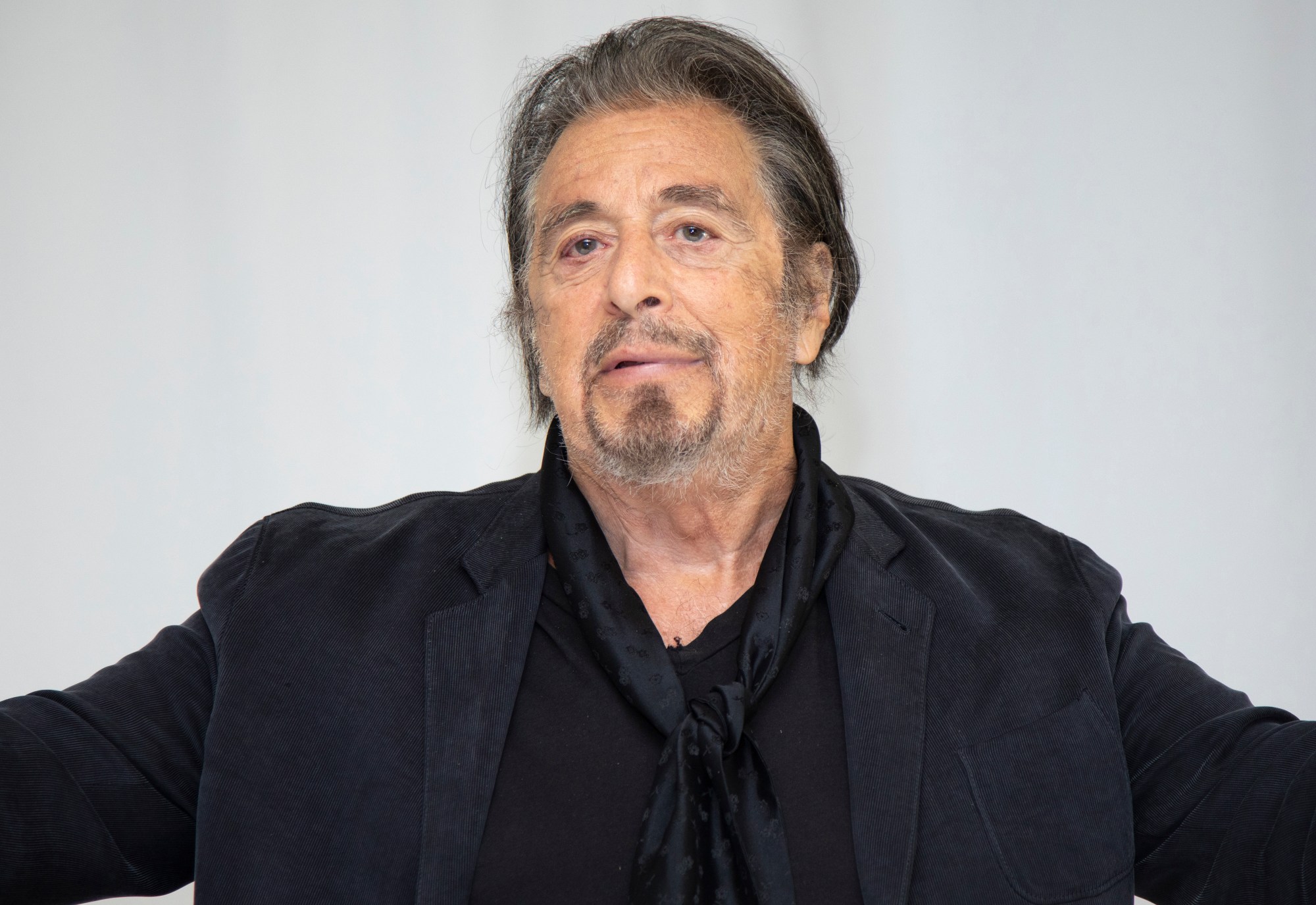
- Golden Globe Awards
Nominee Profile 2020: Al Pacino, “The Irishman”
Al Pacino snagged his 18th Golden Globe nomination -this year, for Best Supporting Actor- for his portrayal of labor leader Jimmy Hoffa in Martin Scorsese’s The Irishman. It caps five decades of extraordinary accomplishments in a long-lived career (Pacino will turn 80 April 25, 2020). The New York-born Italian American legend has won five Golden Globes, the last one in 2010 for the TV movie You Don’t Know Jack.
The Irishman reunited Pacino with his old friend Robert De Niro (who plays his henchman, Frank Sheeran). Ironically the two had acted together, and briefly, only twice, in Heat (1995), and Righteous Kill (2008). Pacino had never worked with Scorsese before. And it was De Niro who recommended Pacino to his long-time collaborator to play Hoffa in The Irishman.
“Bob [De Niro] and I go back a long time,” says Pacino. “I’ve known Bob my whole life, I knew him when he was a young actor, both of us were young actors. I had never worked with Martin Scorsese, who is such a great artist and director. And it was a really wonderful script that they came up with. So, I said I would do it, and they found a way to our schedules to put it together.”
Pacino, who also won an Academy Award for Scent of a Woman in 1992, is one of the most influential and studied actors of our time. His commitment to the art of acting is clearly shown by his continuous return to the stage (Shakespeare being his great love) and his theater-based films, conceived and directed by him, such as Looking for Richard and Wilde’s Salome.
His dedication to the text and the character is just as evident in The Irishman, a role for which he did a lot of research. “Hoffa was a real icon in the world and in the United States,” Pacino explains, “and he was second in popularity only to then-President Kennedy. But somehow, we always had a feeling of him as someone shady, somewhat suspect, even though I found out he was a real visionary when it came to helping the workers. But that environment, that world that he came out of, was violent and very complex in terms of unions, the employers, the employees, the battle to get decent wages for working people. He was thrown in jail for a while, about five years, and even in prison, he fought for better conditions for his fellow prisoners. And he found himself galvanizing people and getting the prisoners together and finding a way to help them, the cause. Hoffa was always interested in dealing with people who were abused and needed support.”
Pacino reminisces about his beginnings in theater and film. “I remember when my then-girlfriend Jill Clayburgh – a wonderful lady who sadly is not with us anymore – introduced me to Bob, whom we bumped into while walking in New York, on 14th Street. They had worked together in Brian De Palma’s movie. Jill told me: ‘This kid is something … you guys should work together!’ Well, we had to wait quite a long time to work together, but our friendship was immediate and deep. We talked about everything, and also about the meaning of fame, once we attained it: we were so unprepared. Fame was not so in vogue at that time. Art was.”